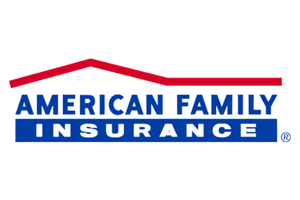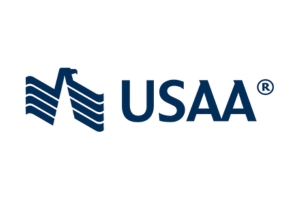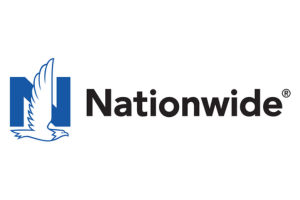Does my car insurance cover damage caused by a road hazard?
Does my car insurance policy provide coverage for damages caused by road hazards? Find out if your insurance covers unexpected costs from road hazards.
Secured with SHA-256 Encryption





Find the Lowest Car Insurance Rates Today
Quote’s drivers have found rates as low as $42/month in the last few days!




Table of Contents
Table of Contents


Professor & Published Author
D. Gilson is a writer and author of essays, poetry, and scholarship that explore the relationship between popular culture, literature, sexuality, and memoir. His latest book is Jesus Freak, with Will Stockton, part of Bloomsbury’s 33 1/3 Series. His other books include I Will Say This Exactly One Time and Crush. His first chapbook, Catch & Release, won the 2012 Robin Becker Prize from S...
D. Gilson, PhD


Licensed Insurance Agent
Tim Bain is a licensed life insurance agent with 23 years of experience helping people protect their families and businesses with term life insurance. His insurance expertise has been featured in several publications, including Investopedia and eFinancial. He also does digital marking and analysis for KPS/3, a communications and marking firm located in Nevada.
Tim Bain
Updated January 2025
Car owners often find themselves wondering whether their car insurance covers damage caused by road hazards. In order to fully understand the answer to this question, it’s important to have a clear understanding of car insurance coverage and the various types available.
Understanding Car Insurance Coverage
Car insurance is a contract between the car owner and the insurance company, designed to protect the owner from financial loss in the event of an accident or damage to the vehicle. It provides peace of mind and ensures that the owner is not left with a hefty bill in the aftermath of an unfortunate incident. However, it is important to note that not all car insurance policies are the same, and coverage varies depending on the policyholder’s specific needs and the insurance company they choose.
When it comes to car insurance, it is crucial to have a good understanding of the basics. Basic car insurance typically provides coverage for liability, which pays for any damage or injury the driver causes to others, as well as coverage for the driver’s injuries. This coverage is essential, as it ensures that victims of an accident are compensated for their losses. However, it is important to note that this basic coverage may not include protection for damage caused by road hazards.
Basics of Car Insurance
Liability coverage is the foundation of most car insurance policies. It not only protects the driver financially but also ensures that victims of an accident are fairly compensated. This coverage comes into play when the driver is at fault in an accident and is responsible for the resulting damages. It helps cover the costs of property damage, medical expenses, and legal fees that may arise from the accident.
In addition to liability coverage, basic car insurance also provides coverage for the driver’s injuries. This is known as personal injury protection (PIP) or medical payments coverage. It helps cover medical expenses, lost wages, and other related costs if the driver or their passengers are injured in an accident, regardless of who is at fault.
While liability and personal injury protection are vital components of car insurance, it is important to understand that they may not cover all potential risks. For example, if your vehicle is damaged by a fallen tree or a hailstorm, basic coverage may not provide the necessary protection. This is where additional types of car insurance coverage come into play.
Types of Car Insurance Coverage
Car owners have the option to purchase additional types of car insurance coverage to protect against various risks. One such coverage is collision coverage, which helps pay for repairs or replacement of the insured vehicle in the event of a collision with another vehicle or object. This coverage is particularly important for those who own expensive or newer vehicles, as the cost of repairs can be substantial.
Comprehensive coverage is another type of car insurance coverage that car owners can opt for. It provides protection against damage to the insured vehicle caused by incidents other than collisions, such as theft, vandalism, fire, or natural disasters. With comprehensive coverage, car owners can have peace of mind knowing that they are financially protected against a wide range of risks.
Furthermore, uninsured/underinsured motorist coverage is an essential addition to any car insurance policy. This coverage helps protect the policyholder if they are involved in an accident with a driver who either does not have insurance or does not have enough insurance to cover the damages. It ensures that the policyholder is not left to bear the financial burden of an accident caused by an uninsured or underinsured driver.
It is important for car owners to review their policy and understand what coverage they have. Each insurance company may offer different options and limits for each type of coverage. By carefully reviewing the policy, car owners can ensure that they have the appropriate coverage to suit their needs and protect themselves from potential financial loss.
Free Auto Insurance Comparison
Compare Quotes From Top Companies and Save
Secured with SHA-256 Encryption
Defining Road Hazards
Road hazards are unexpected obstacles or conditions on the road that can cause damage to a vehicle. They can include potholes, debris, fallen branches, and even wildlife. It’s important to be aware of these hazards and take precautionary measures to avoid damage to your vehicle.
When it comes to road hazards, preparation is key. Understanding the different types of hazards that can be encountered on the road can help drivers navigate safely and avoid potential damage to their vehicles.
Common Road Hazards
Some common road hazards include potholes, which can cause damage to tires and alignment; debris, which can puncture tires or damage the undercarriage of the vehicle; and weather conditions such as flooding or ice, which can make driving dangerous.
Potholes are a common sight on many roads, especially after a harsh winter. These depressions in the road surface can vary in size and depth, posing a threat to tires and suspension systems. Hitting a pothole at high speeds can result in a blown tire or even damage to the wheel rims.
Debris on the road can come in various forms, from loose gravel and rocks to discarded objects. These hazards can puncture tires, causing flats, or get lodged in the undercarriage of the vehicle, potentially damaging vital components.
Weather conditions can also create hazardous driving conditions. Flooding can make roads impassable, while ice can cause vehicles to lose traction, leading to accidents. It’s important to exercise caution and adjust driving behavior accordingly when encountering these weather-related hazards.
Unexpected Road Hazards
In addition to the common road hazards, there are unexpected hazards that can cause damage to a vehicle. These can include construction zones, where debris may be present; wild animals crossing the road; or even road rage incidents that can result in collisions.
Construction zones can be hazardous due to the presence of loose gravel, uneven road surfaces, and construction equipment. It’s important to slow down and follow any posted signs or detours to ensure a safe passage through these areas.
Wild animals crossing the road can also pose a danger to both drivers and the animals themselves. Collisions with wildlife can cause significant damage to vehicles and result in injuries or fatalities. Being aware of wildlife crossing signs and driving cautiously in areas known for animal activity can help prevent such incidents.
Road rage incidents, although less common, can also lead to hazardous situations. Aggressive driving behaviors, such as tailgating or sudden lane changes, can escalate into collisions or other dangerous situations. It’s important to remain calm and avoid engaging with aggressive drivers to ensure your safety on the road.
By understanding both the common and unexpected road hazards, drivers can take proactive measures to protect themselves and their vehicles. Regular vehicle maintenance, such as tire inspections and alignment checks, can help identify and address potential issues before they become major problems. Additionally, staying alert and practicing defensive driving techniques can greatly reduce the risk of encountering road hazards and the subsequent damage they can cause.
How Car Insurance Handles Road Hazards
When it comes to road hazards, coverage may vary depending on the type of car insurance policy you have. Understanding how your policy handles road hazards is important to ensure you have the right coverage in case of an incident.
Comprehensive Coverage and Road Hazards
Comprehensive coverage is an optional coverage that provides protection against damage to the vehicle that is not caused by a collision, such as theft, vandalism, or weather-related damage. This coverage is designed to protect you from a wide range of risks, but it’s important to review your policy to determine what is covered.
When it comes to road hazards, comprehensive coverage may also provide coverage for damage caused by these hazards. Road hazards can include things like potholes, debris on the road, or even animals crossing the street. If your car sustains damage from hitting a pothole or swerving to avoid an animal, comprehensive coverage may help cover the cost of repairs.
However, it’s important to note that not all comprehensive policies cover road hazards. Some policies may have specific exclusions or limitations when it comes to road hazard coverage. It’s always a good idea to review your policy and speak with your insurance provider to fully understand what is covered and what is not.
Collision Coverage and Road Hazards
Collision coverage is another optional coverage that provides protection for damage to the insured vehicle caused by a collision with another vehicle or object. This coverage is typically used to repair or replace your vehicle if it’s damaged in an accident.
When it comes to road hazards, collision coverage generally does not cover damage caused by these hazards. Road hazards are typically considered non-collision-related incidents, and collision coverage is specifically designed to cover collisions with other vehicles or objects.
However, there may be some exceptions depending on your policy and insurance provider. Some collision coverage policies may offer limited coverage for damage caused by road hazards, but this is not always the case. It’s important to review your policy and speak with your insurance provider to understand the extent of your coverage.
In conclusion, both comprehensive coverage and collision coverage may have some provisions for road hazards, but it’s important to review your policy and speak with your insurance provider to fully understand what is covered and what is not. Having the right coverage can provide you with peace of mind knowing that you are protected in case of an incident involving road hazards.
Factors Affecting Coverage
There are several factors that can affect the coverage provided by your car insurance policy. Understanding these factors can help you make informed decisions about your insurance coverage.
Policy Limitations and Exclusions
Insurance policies often have limitations and exclusions that define what is covered and what is not. It is important to review your policy carefully to understand the specific coverage limitations and exclusions that apply to road hazards. For example, your policy may exclude coverage for certain types of road hazards, such as damage caused by potholes or debris on the road. By knowing these limitations and exclusions, you can better assess your coverage needs and consider additional coverage options if necessary.
Additionally, policy limitations can also affect the amount of coverage you receive for road hazard damage. Some policies may have a maximum coverage limit for road hazard-related claims. This means that if the cost of repairing the damage exceeds the policy limit, you may be responsible for covering the remaining costs out of pocket. Understanding the policy limitations can help you determine if you need to adjust your coverage or seek additional coverage options.
The Role of Deductibles
Deductibles are the amount of money that the policyholder is responsible for paying before the insurance coverage kicks in. Deductibles can impact how much coverage you receive for road hazard damage, as you may be required to pay a deductible before your insurance company covers the remaining costs. For example, if your policy has a $500 deductible and the cost of repairing the road hazard damage is $1,000, you would be responsible for paying the $500 deductible, and your insurance company would cover the remaining $500.
It is important to consider the impact of deductibles on your coverage. Higher deductibles can lower your insurance premiums, but they also mean that you will have to pay more out of pocket in the event of a claim. On the other hand, lower deductibles may result in higher premiums but can provide more coverage without a significant out-of-pocket expense. Evaluating your financial situation and risk tolerance can help you determine the deductible that is right for you.
Furthermore, some insurance policies may offer the option of a separate deductible for road hazard damage. This means that you may have a different deductible amount specifically for road hazard-related claims. Understanding whether your policy includes this option and the associated deductible amount can help you plan for potential road hazard damage expenses.
Free Auto Insurance Comparison
Compare Quotes From Top Companies and Save
Secured with SHA-256 Encryption
Filing a Claim for Road Hazard Damage
If your car has sustained damage from a road hazard, it is important to follow the necessary steps to file a claim with your insurance company.
Steps to File a Claim
To file a claim for road hazard damage, you will need to contact your insurance company and provide them with the necessary information, such as the location and time of the incident, a description of the damage, and any supporting documentation, such as photographs or repair estimates.
What to Expect After Filing a Claim
After filing a claim, your insurance company will assign an adjuster to assess the damage and determine the amount of coverage you are eligible for. It is important to keep in mind that the amount of coverage provided will depend on the specific terms of your policy.
In conclusion, whether or not your car insurance covers damage caused by a road hazard depends on the specific coverage you have. It is important to review your policy to understand what coverage is included and what limitations or exclusions may apply. In any case, it is always wise to exercise caution while driving and to be aware of potential road hazards.
Frequently Asked Questions
Does car insurance cover damage caused by road hazards?
Yes, car insurance can cover damage caused by road hazards, but it depends on the specific policy and coverage options chosen.
What are considered road hazards?
Road hazards can include potholes, debris, fallen objects, ice, snow, floods, and other unexpected obstacles on the road that can cause damage to a vehicle.
Will my car insurance cover damage from hitting a pothole?
In most cases, car insurance policies that include comprehensive coverage or collision coverage will cover damage from hitting a pothole. However, it is important to review your policy to understand the specific coverage details.
Is damage caused by road hazards covered by liability insurance?
No, liability insurance typically covers damages to other vehicles or property caused by the insured driver. Damage caused by road hazards is usually covered by comprehensive or collision coverage.
What should I do if my car is damaged by a road hazard?
If your car is damaged by a road hazard, you should document the damage by taking photos, report the incident to your insurance company, and follow their instructions for filing a claim. It is also advisable to get any necessary repairs done promptly to prevent further damage.
Does car insurance cover damage from hitting an animal on the road?
Yes, car insurance policies that include comprehensive coverage usually cover damage from hitting an animal on the road. However, it is essential to review your policy to confirm the coverage details.
Get a FREE Quote in Minutes
Insurance rates change constantly — we help you stay ahead by making it easy to compare top options and save.


